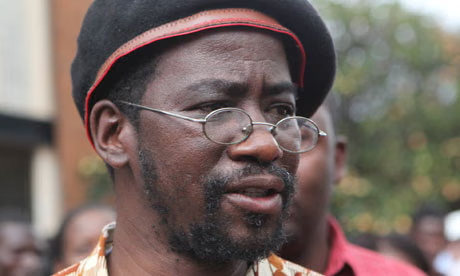
Businessman, lawyer and banker Tawanda Nyambirai ignited national conversation after outlining what he calls a “clear pathway to 2030” — a vision that challenges Zimbabweans to think beyond immediate gains and to start building a nation capable of sustaining prosperity for future generations.
In a post that has gone viral on X (formerly Twitter), Nyambirai declared: “We must build not for next year, but for the generation after next.”
Those ten words have stirred debate across business circles, political spaces and academia — not just for their poetic brevity, but for the depth of meaning they carry.
Nyambirai, who rose to prominence as the founder of TN Holdings, a diversified conglomerate with interests in finance, retail, and manufacturing, is no stranger to strategic foresight. From steering TN Bank into a major financial player to pioneering mobile banking innovations before their time, Nyambirai has built a reputation as one of Zimbabwe’s most visionary business figures.
Now, as Zimbabwe pushes toward Vision 2030 — the government’s blueprint to achieve upper-middle-income status — Nyambirai is calling for a recalibration of mindset and method.
In his statement, Nyambirai argues that national development must transcend electoral cycles, temporary profits, and policy slogans. His message: think in decades, not in years.
“Short-term goals can bring temporary relief,” he reportedly told colleagues at a recent business forum, “but only long-term vision builds enduring prosperity. Our institutions, companies and leaders must start imagining a Zimbabwe that outlives us — one where our children inherit functioning systems, not broken dreams.”
Sources close to Nyambirai’s business interests reveal that his “Pathway to 2030” framework rests on four foundational pillars:
1. Job Creation and Industrial Renewal – Nyambirai believes Zimbabwe must re-industrialise by reviving local production and rewarding innovation. He has consistently argued that wealth creation should be tied to manufacturing and exports, not speculation.
2. Financial Inclusion through Technology – Drawing from his deep experience in banking and fintech, he insists that financial access should reach every Zimbabwean — especially rural youth and women. “If the unbanked remain outside the system, the economy will never grow from the ground up,” he has said in past interviews.
3. Export-Oriented Value Chains – He envisions a Zimbabwe that exports finished goods, not raw materials, arguing that the country can only grow its economy sustainably if it builds brands that compete internationally.
4. Ethical and Visionary Leadership – Nyambirai’s emphasis on ethics reflects his broader belief that no system can outlive its moral foundation. He has repeatedly warned that corruption and short-term self-enrichment will derail every reform effort unless institutions are strengthened.
Tawanda Nyambirai’s credibility stems not only from his success in business but also from his willingness to challenge conventional thinking. His early partnership with Econet Wireless, where he played a critical role in structuring financial frameworks, positioned him as one of the key figures behind Zimbabwe’s digital and banking transformation.
Over the years, Nyambirai has moved between boardrooms, courtrooms and classrooms — serving as a mentor to many young entrepreneurs who see him as a model of integrity and innovation.
Economists have praised Nyambirai’s statement as timely, noting that his call for generational planning dovetails with Vision 2030, but offers a more grounded, private-sector-driven approach.
Financial analyst Rufaro Mandizha noted: “What Nyambirai is saying is profound — that Vision 2030 won’t be achieved through wishful thinking or government programs alone. It needs disciplined private investment, ethical leadership, and consistent planning. He’s urging everyone to move from rhetoric to responsibility.”
For many Zimbabweans weary of economic cycles and political turbulence, Nyambirai’s message feels like a moral and strategic wake-up call. Social media users have widely shared his quote, describing it as “the mindset Zimbabwe has been waiting for.”
One user wrote, “If more business leaders spoke like Tawanda Nyambirai, Zimbabwe would already be halfway to 2030.”
As the country continues to wrestle with inflation, youth unemployment, and capital flight, Nyambirai’s words resonate as both a challenge and a compass. His insistence on generational building may mark a turning point in how Zimbabwean entrepreneurs, investors and policymakers think about development.
If his vision gains traction, Nyambirai could well become one of the key voices shaping Zimbabwe’s moral and economic direction toward 2030 — not through politics, but through principle.
And as his now-famous statement continues to echo across social media and boardrooms alike, one thing is clear: Tawanda Nyambirai is not just speaking to his followers — he’s speaking to the future.










